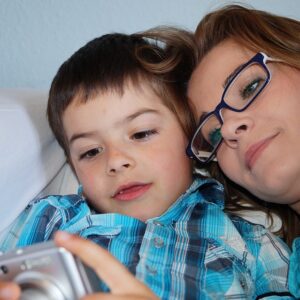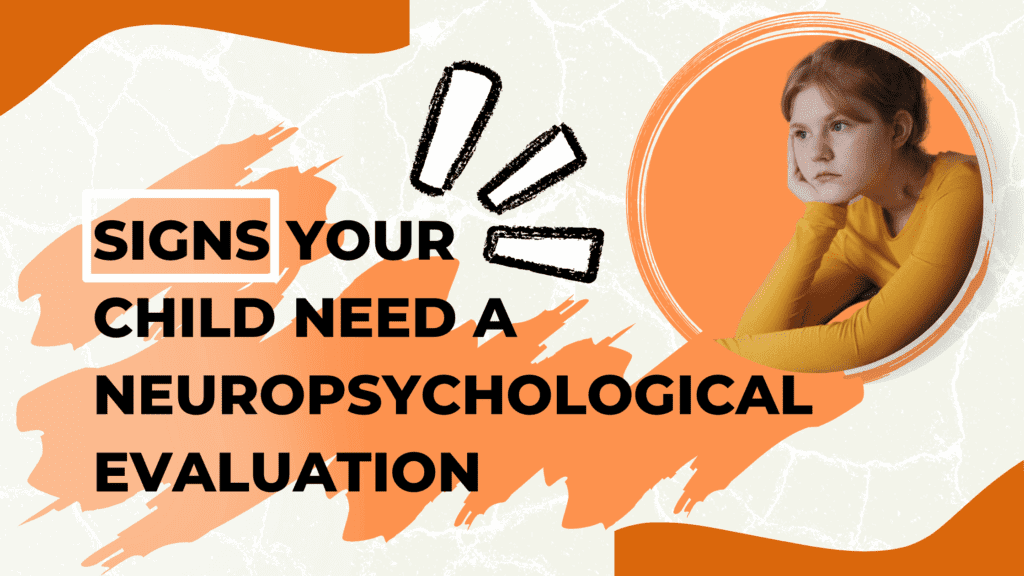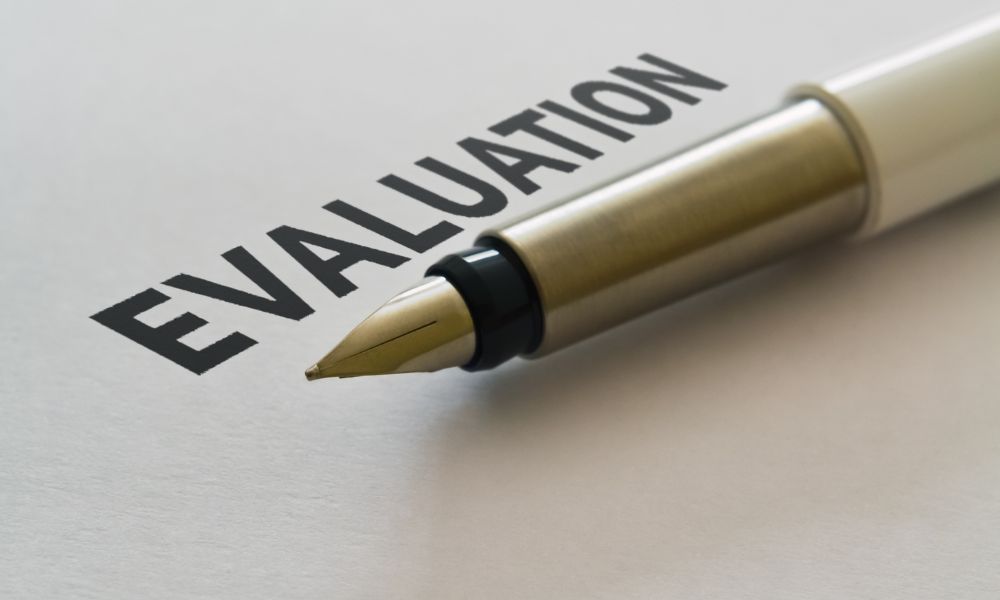
20 Oct Does Your Child Need a Neuropsychological Evaluation?
Wondering If Your Child Needs A Neuropsychological Evaluation?
A child struggling with any cognitive milestone might not be living to their fullest potential. While mastering a skill can take some time, it may be worrisome when a child doesn’t display certain signs of development that are typical for their age.
A neuropsychological evaluation might be needed to understand the extent of the developmental challenges that a child faces.
A neuropsychological evaluation provides in-depth insights regarding the stage a child is on their journey of cognitive development. Knowing what to look out for when assessing your child can help determine whether they need a neuropsychological evaluation.
Signs Your Child Needs a Neuropsychological Evaluation
A neuropsychologist will look for the following symptoms in detail before developing an appropriate assessment.
- Learning disorders
- Language disorders
- Poor grades
- Focus and concentration issues
- Listening problem
- Poor judgment skills
- Losing items or poor organizational skills
- Processing speed
- Intellectual disability
- Inattentiveness, hyperactivity, impulsivity
Besides problems in technical subjects like math and science, a child needing neuropsychological evaluation might also lack visual spatial skills. That is, your child might find it difficult to draw or paint something.
It is usually because of poor motor skills and lack of judgment or connection between the brain and moving the hands.
Overall, a neuropsychological evaluation is recommended for a child if they face any of the three problems:
1. Learning Problems and Disabilities
The child faces difficulties in processing and dealing with languages or numbers. In other words, they struggle when they try to read, write or do the math.
More severe and ongoing challenges with these elements suggest the presence of learning disabilities like dyslexia, dyscalculia, dyspraxia, and dysgraphia.
2. Brain Injury
The child’s cognitive performance declines after some form of brain injury. They struggle with disorientation or amnesia and have issues in maintaining proper alertness levels. Perhaps they show signs like slurred speech or motor problems.
3. Genetic Problem or Disease
The child suffers from some genetic disorder that affects cognitive components like memory, attention, problem-solving, or personality.
How is Neuropsychological Evaluation Different from Psychoeducational Testing?
A neuropsychologist can help assess many cognitive areas and functions of the brain. As a result, a neuropsychological evaluation is more capable of finding multiple diagnoses in a child.
Many schools offer psychoeducational testing. Sometimes, learning disabilities happen in conjunction with underlying mental health issues like depression or anxiety.
While psychoeducational testing focuses only on the learning aspect, a neuropsychological evaluation is also designed to assess other causes.
Many neuropsychological tests are designed to test multiple cognitive functions of the brain. Schools generally don’t have neuropsychologists on their staff, so your best bet is to look in the private sector.
However, the results can be formulated into a written document that could be useful to the child’s school authorities.
Doing this would legalize an Individualized Educational Plan (IEP) for the child. The school district would use the recommendations cited in the report to make adjustments and provide personalized support to the student.
Many standardized options are available for neuropsychological evaluations, of which the NEPSY-II is among the most common. A NEPSY-II is not required when performing a neuropsychological evaluation.
The NEPSY-II Test for a Child’s Neuropsychological Evaluation
The NEPSY test is designed to assess six cognitive areas in children aged between three and sixteen. Here are the areas that are evaluated:
1. Memory and Learning
This area focuses on assessing the child’s ability to recall sentences, faces, and names. It highlights how a child can update existing mental structures to include new helpful information.
2. Social Perception
This area focuses on assessing the child’s ability to recognize emotions and understand mental functions like belief, deception, emotion, and imagination. It highlights how a child can understand social conventions and use emotional intelligence.
3. Language
This area focuses on assessing the child’s ability to name body parts, comprehend instructions, process phonological information, and generate words within specific categories. It highlights how a child can use their expressive language skills.
4. Executive Functions and Attention
This area focuses on the child’s ability to form basic concepts, engage in selective auditory attention, and inhibit automatic responses in favor of new and novel answers. It highlights if the child can organize and plan effectively.
5. Visuospatial Processing
This area focuses on the child’s ability to judge line orientation, reproduce 3D models from 2D settings, copy 2D figures, and use the map. It highlights if the child can understand the relationship between visual and spatial elements.
6. Sensorimotor
This area focuses on assessing the child’s finger dexterity and motor speed. Additionally, it assesses graphomotor speed and accuracy and the ability to imitate hand expressions. It helps set the child’s control over their motor abilities.
Summary
Getting a neuropsychological evaluation for your child can yield many benefits. It can help detect underlying mental health issues affecting your child’s learning progress due to cognitive dysfunction in one or many areas, such as memory span, language, and more.
If your child struggles at school, it’s best to get a NEPSY-II test. It covers around six areas of the brain that may be strong or weak in children between three and sixteen years old. A neuropsychological evaluation can help the school authorities develop a proper individualized educational plan (IEP), should your child needs it.
CHECK OUT OUR OTHER BLOGS:
⏩ Why Get a Neuropsychological Evaluation?
⏩ What is the Goal of a Pediatric Neuropsychological Evaluation?
⏩ A Parent’s Guide To Pediatric Neuropsychological Assessment
Need help with neuropsychological evaluation for your child? Chat with Themba Tutors Today!
We will connect you to some of the best neuropsychologists in the New York City metro area!
Call: (917) 382-8641, Text: (833) 565-2370
Email: [email protected]
(We respond to email right away!)
References:
https://www.understood.org/en/articles/neuropsychological-evaluations-what-you-need-to-knowhttps://www.aane.org/guidelines-neuropsychological-evaluations-children-teens/
https://www.understood.org/en/articles/neuropsychological-evaluations-what-you-need-to-know
Craig Selinger
Latest posts by Craig Selinger (see all)
- Psychotherapy and Support Services at Cope With School NYC - April 12, 2024
- NYC Parents of Teens Support Group - April 8, 2024
- Here I Am, I Am Me: An Illustrated Guide to Mental Health - April 4, 2024




No Comments